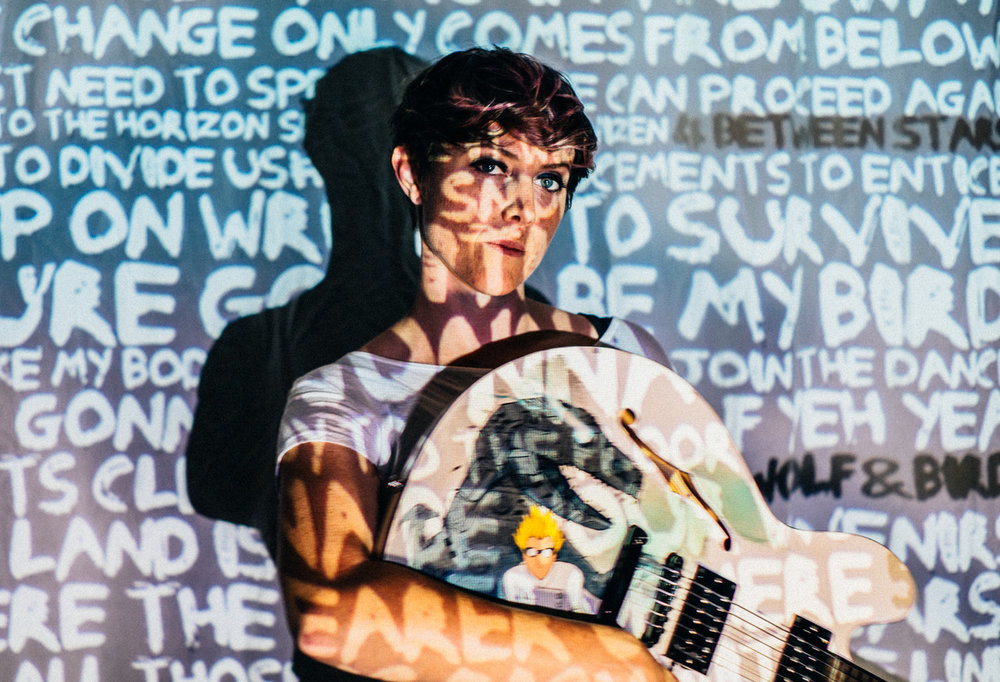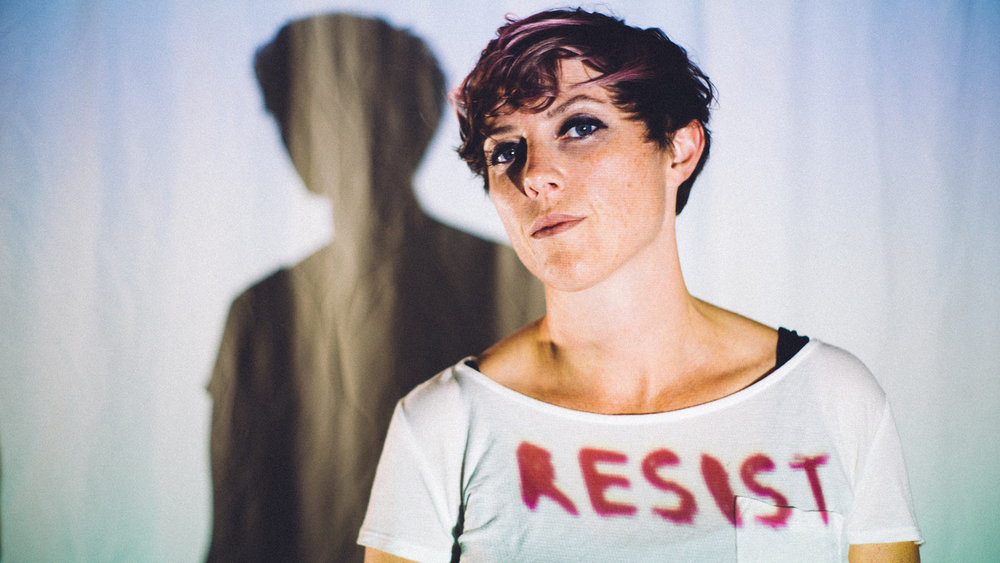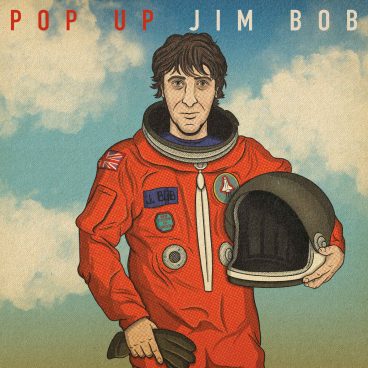No matter how insignificant and powerless you might feel, you can make a difference. That’s the message of Resister, which starts with an insistent 150 BPM loop and is quickly joined by a torrent of challenging ideas that don’t let up for 2 minutes 53 seconds of uplifting, infectious, political indie pop aimed squarely at motivating “the underdogs, black sheep [and] fighters of the powers that be”.
“Sometimes it’s too much, you know,” sings Louisa Roach, songwriter and frontwoman of the four-piece from The Wirral, Merseyside, “and now I know they got you feeling down low / But there’s one way to dig ourselves from this hole / Because true change only comes from below”.
#Resistance
“Resistance” has become the hashtag du jour, particularly in the US, for people who want to announce their opposition to a president who represents the most prejudiced, crass and uncultured stereotype of Americuh. Unfortunately, “resistance” doesn’t rhyme with “sister”, but we are, says Louisa, talking about the same thing.
The song is “not about Trump in particular,” she says, “but certainly about the kind of power structures that he is part of. I like the word resister because it has both ‘resist’ and ‘sister’ within it, and to me it describes a person who is resisting, pushing back against powerful forces. Even if that is just something as simple as caring for yourself.”
A key phrase in Resister is “Don’t let your heart close its fist” – a succinct warning against succumbing to the emotional numbness so often developed by people who have experienced a hard life.
“Somebody got in touch with me a couple of days ago to tell me that they were at a really low point and this song ‘held its hands out and pulled me up’,” she says, proudly. “To me that’s the true meaning of the song, what it is there for. People are going through tough times. It’s about not letting your heart get too hardened by adversity, about keeping your heart open but resisting in whatever way you need to, choosing whether to take the role that is expected of you or to oppose the flow of power. It’s a gentle reminder that you’re not alone, that you can resist, that you can do it all with kindness and an open heart. Your heart doesn’t need to close its fist and become hard.”
It got messy
Following up 2016’s debut album Memories of the Future, Louisa has once again been working with producer James Skelly, better known for his day job as the frontman of The Coral, and the ensuing album, Revolution of Mind, featuring Resister, has been released on his label, Skeleton Key. And the front cover is provocative.
Against a fluorescent pink background, a steely-eyed topless model stands, displaying her palms in a stance that could equally be indicating defencelessness or commanding the viewer to halt. And she is smeared from ears to waist in engine oil, with emotive key words from Louisa’s lyrics finger-painted into the brown sludge on her skin. “The model on the shoot was a really good sport,” says Louisa. “It got messy”.
“I’d certainly say it’s quite striking,” she adds. “We wanted to do something that represented the music using art, so the idea was to take something ‘pop’ and subvert it. The female body is so entangled in pop music and art; we used this as something to work from and as a kind of site of resistance. It’s inspired by feminist artists such as Judy Chicago, Jenny Holzer and Barbara Kruger, so we used lyrics from the album as text art.”
Sweet Harmony
In between the two albums, last year She Drew the Gun released a cover version of The Beloved’s 1992 Top Ten hit Sweet Harmony, a gently hippy-trippy paean to unity that featured in a series of recordings marking the 25th anniversary of Grammy-award winning Liverpool recording studio complex Parr Street Studios.
“There’s no point in doing a cover unless you are going to make it your own,” says Louisa, “especially with such a beautiful song. I mean, it’s already perfect as it is. I love the message and I think it’s more relevant now than ever.”
But while the original song hook featured the singalong chorus of “Let’s come together / Right now, oh yeah”, Louisa’s rendition added a sharper twist – a dynamism the original never contained, with a rap sequence calling for a more politicised citizenry to rise above their aims of “endless acquisition” and instead to consider the “elevation of the human race”.
This approach seems to sum up Louisa Roach’s aim as a songwriter and performer – to use pop music to communicate something meaningful and to do it in a way that is direct and unflinching, never woolly or ambiguous.
“I’m concerned by the destruction and waste that capitalism brings, that we still prioritise profit and serving ‘markets’ over human life,” says Louisa in a kind of mission statement for She Drew the Gun’s canon to date, as well as a summary of her own beliefs, “A lot of my songs are mini critiques of capitalism from one angle or another, sometimes envisioning different worlds with a sci-fi protest song, sometimes directly calling something out. Some of the subjects I touched on in this album were resistance, depression, love, solidarity, the human reward system, war, outsiderness, but there is a surreal dreamlike psychedelic element too. Words and subject matter are important to me, I try to make music that I like and if it can tell someone they are not alone in whatever way, that is just great.”





